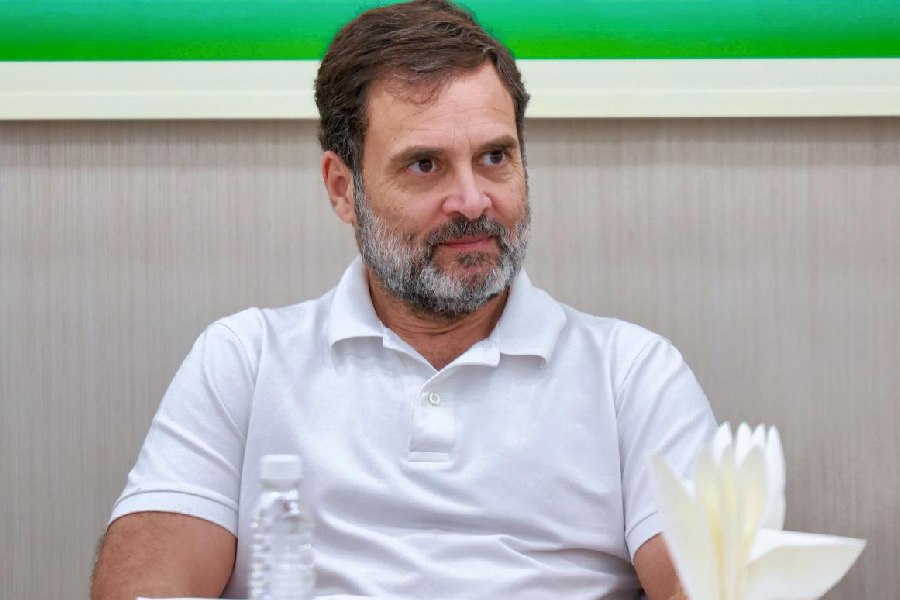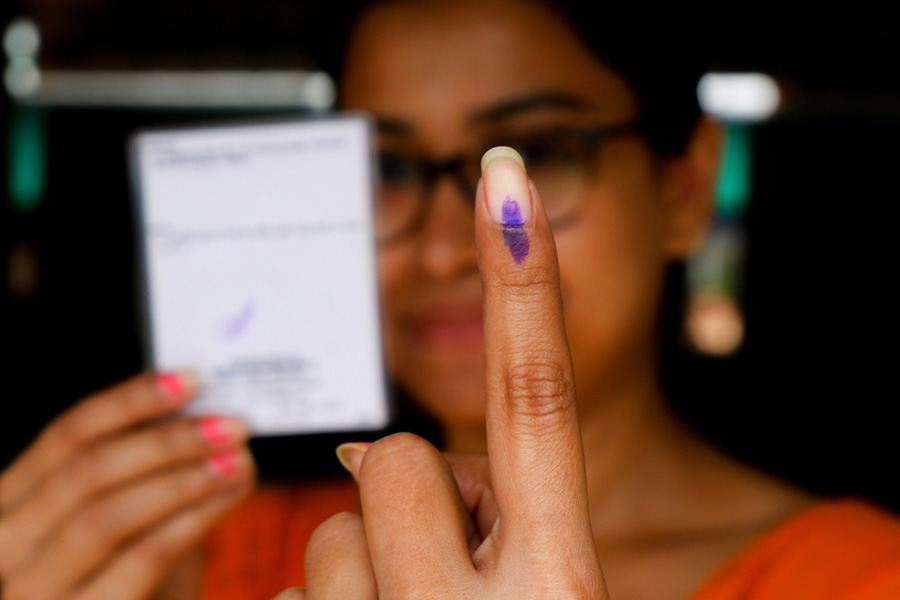Rahul Gandhi has again flagged how a controlled media and crippled institutions face Opposition parties with a grave disadvantage during Indian elections, his comments coming as he prepares for another cross-country Yatra before next summer’s general election.
“You need an infrastructure to fight elections. You need a free media to fight elections, you need a fair Election Commission and a legal system, access to finance and institutions that are neutral,” the Congress leader said while interacting with a group of students from Harvard University who were in Delhi earlier this week.
He alluded obliquely to the hounding of Opposition politicians by central investigative agencies such as the Enforcement Directorate, CBI and income-tax authorities.
“Imagine, in the United States, if the full-time job of the IRS (Internal Revenue Service) and the FBI (Federal Bureau of Investigation) is to destroy the Opposition…. That is the paradigm we are in,” Rahul said.
“I didn’t walk 4,000km (in the first Bharat Jodo Yatra) because I like walking 4,000km. There was no way to get our message across.”
Opposition parties have long accused the Narendra Modi government of misusing its agencies to harass Opposition leaders and weaken them electorally. Central agencies had harried Congress leaders in the middle of electioneering during the recent Chhattisgarh and Rajasthan elections.
Media bias has been another grouse with the Opposition.
“Even my social media is fully capped. Twitter and YouTube are under control. I am not alone. The entire Opposition is facing this. Those are the dynamics the Opposition in India is dealing with,” Rahul said.
“I don’t think India is running a free and fair democracy any more. Ninety per cent of the Indian media is controlled by three people. I represent groups that are not represented in the media. The poor, Dalits, tribals, OBCs, weaker sections — the media is not interested in them.”
Rahul has in the past, too, alleged that democracy is dead in India and that elections are no longer an even competition between parties as the Opposition has to face the full might of the Indian State.
There is suspicion about the electronic voting machines as well. Many Congress seniors have alleged that elections are manipulated, and the Opposition parties have jointly petitioned the Election Commission seeking more safeguards.
Rahul had in the past said the Bharat Jodo Yatra of 2022-23 had broken barriers and that he had been able to convey his message to the people without the help of the media.
He repeated this in his conversation with the Harvard students, saying: “The Bharat Jodo Yatra was a powerful communication. We walked for seven hours a day and talked for half an hour.”
He said that to him, power comes from listening to the people.
Rahul also spoke of bringing the idea of love into politics, asserting that it had helped him immensely in the past one year.
During the Kanyakumari-to-Kashmir walkathon, his compassionate attitude towards strangers — ordinary people, mostly poor — whom he embraced and lent his ears to, had drastically improved his image.
While the narrative of unity and harmony had generated a powerful counterforce to the toxic discourse of divisive politics, Rahul said India’s freedom struggle, based on truth and non-violence, had inspired his approach.
His mid-Yatra assertion — “Nafrat ke bazar mein mohabbat ki dukan khol raha hun (I am opening the shop of love in a market of hate)” — had captured the popular imagination.
Rahul has given ample indication that the second Yatra he is planning will have the same content and tenor although it will be different in form. The Yatra is expected to be conducted along an east-west route and will be shorter.
The Congress leader, who has long been insistent that unemployment and price rise are the main issues, buttressed the point in response to a question on economic growth from a Harvard student.
“Whenever you want to talk about economic development, you have to ask in whose interest that economic development is taking place,” Rahul said.
“An economic system never grows in the interest of everybody. It always grows in the interest of some groups. The question to ask is, what the nature of that growth is and who is benefiting from that growth.”
Rahul criticised the monopolies emerging around Adani. “Right next to the figure of growth, you have the figure of unemployment in India. India is growing but the way it is growing is by concentrating wealth towards a few people,” he said.
“Most of the growth is based on natural resources and consumption and not on production, which is the real problem. Without manufacturing, India cannot create jobs.”











